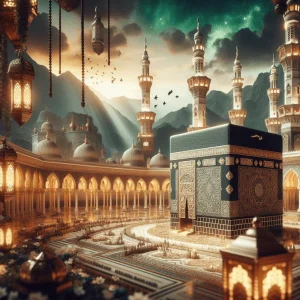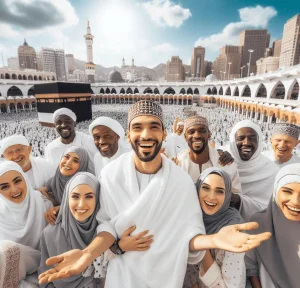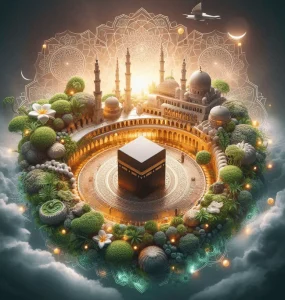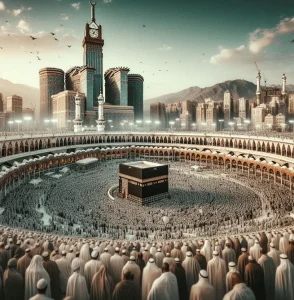Table of Contents
Eid al-Fitr In the rich tapestry of Islamic culture, few occasions shimmer with as much vibrancy and significance as Eid al-Fitr. This celebration, marking the end of Ramadan, the holy month of fasting, serves as a profound testament to the core values of Islam: faith, community, and gratitude.

Origins and Significance
Eid al-Fitr, also known as the “Festival of Breaking the Fast,” holds deep roots in Islamic tradition. It commemorates the end of Ramadan, a period of spiritual reflection, self-discipline, and heightened devotion. As the crescent moon ushers in the new month of Shawwal, Muslims worldwide come together to celebrate the culmination of their fasting journey.
Spiritual Reflection
Central to Eid al-Fitr is the spiritual reflection on the preceding month of Ramadan. Muslims engage in rigorous fasting from dawn to dusk, refraining not only from food and drink but also from worldly distractions. This abstention fosters a deeper connection with God and encourages self-discipline, empathy, and compassion towards others.
Communal Celebration
Eid al-Fitr heralds a jubilant atmosphere as families, friends, and communities gather to share in the joyous festivities. Mosques brim with worshippers clad in their finest attire, offering prayers of gratitude and seeking divine blessings. Streets come alive with colorful decorations, echoing with the laughter of children and the exchange of warm greetings.
Festive Traditions
The spirit of Eid al-Fitr is embodied in its diverse array of festive traditions. The day typically begins with the Eid prayer, performed in congregation at mosques or outdoor venues. Following this, families partake in a sumptuous feast, featuring an assortment of delectable dishes symbolizing abundance and generosity.
Eid al-Fitr is also a time for charitable giving, known as Zakat al-Fitr, where Muslims donate to those less fortunate, ensuring that everyone can partake in the joy of the occasion. Additionally, exchanging gifts and visiting loved ones are cherished customs that strengthen familial bonds and foster a sense of unity within the community.
Culinary Delights
No Eid celebration is complete without an indulgence in mouthwatering delicacies. From savory biryanis and succulent kebabs to sweet treats like sheer khurma and baklava, the Eid table overflows with a feast for both the body and the soul. Each dish carries its own cultural significance, reflecting the diverse heritage of the Muslim world.
Joyous Atmosphere
The air is imbued with a palpable sense of joy and gratitude during Eid al-Fitr. Streets bustle with activity as families embark on visits to relatives and friends, spreading goodwill and fostering camaraderie. Children, adorned in new attire, revel in the excitement of receiving Eidi, monetary gifts bestowed upon them as a token of love and blessings.
Global Observance
Eid al-Fitr transcends geographical boundaries, uniting Muslims from every corner of the globe in celebration. Whether in the bustling metropolises of Istanbul or the tranquil villages of Indonesia, the spirit of Eid resonates universally, emphasizing the shared values of faith, compassion, and unity.
Eid al-Fitr
In essence, Eid al-Fitr encapsulates the essence of Islam’s teachings, emphasizing the importance of faith, family, and community. It serves as a poignant reminder of the blessings bestowed upon humanity and the imperative of extending kindness and generosity to all. As Muslims come together to rejoice in the spirit of Eid, they reaffirm their commitment to God and to one another, fostering a world imbued with love, compassion, and peace.






More Stories
Tales of Wonder: Unraveling the Islamic Heritage Mystery
In the Footsteps of Greatness: Journeying Through Islamic Heritage Sites
Echoes of History: Rediscovering Islamic Heritage Around the World